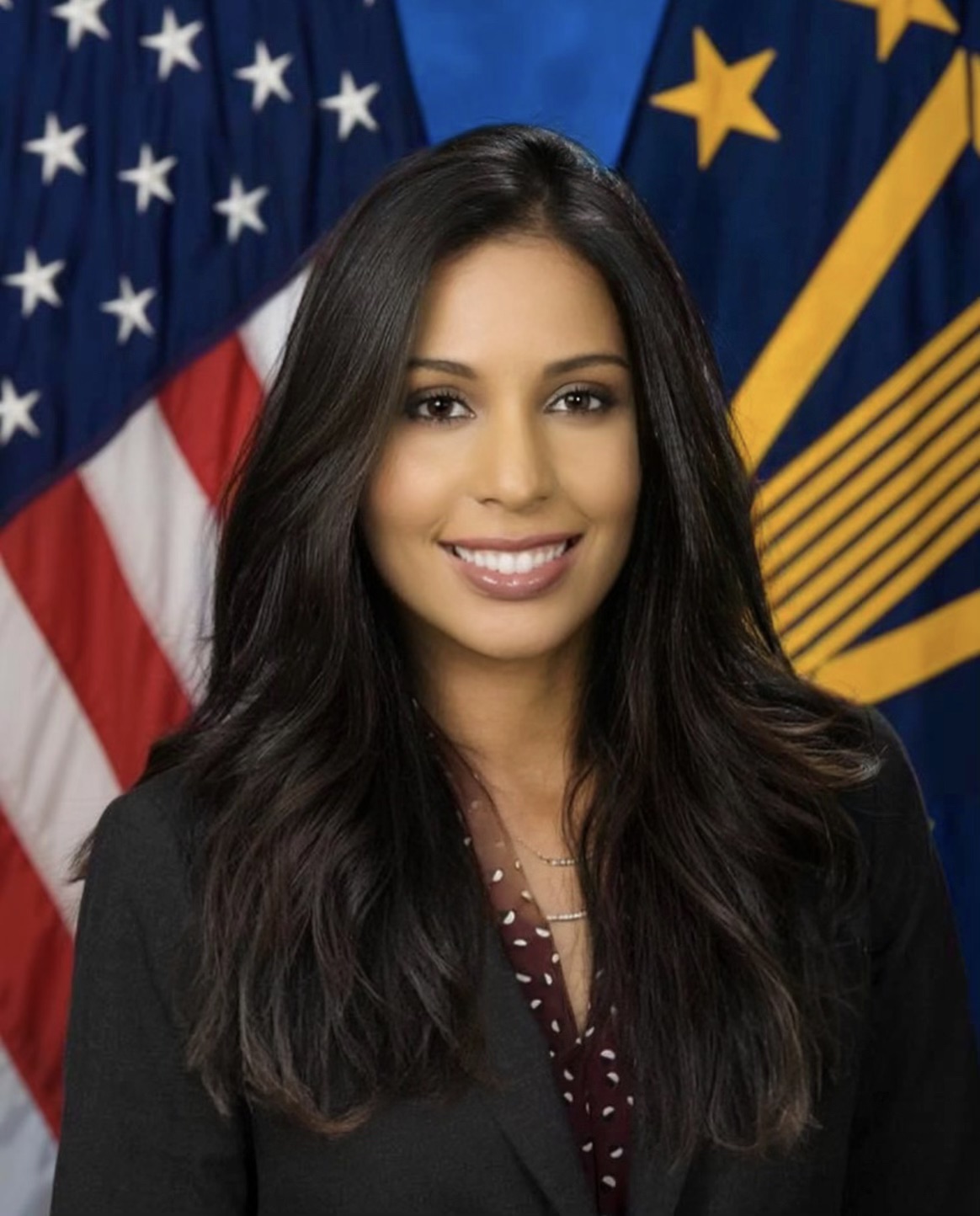Attention A T users. To access the menus on this page please perform the following steps.
1. Please switch auto forms mode to off.
2. Hit enter to expand a main menu option (Health, Benefits, etc).
3. To enter and activate the submenu links, hit the down arrow.
You will now be able to tab or arrow up or down through the submenu options to access/activate the submenu links.
Locator
Contact
Search
VA »
VA Homeless Programs
»
Message from Monica Diaz, Executive Director, VHA Homeless Programs Office
VA Homeless Programs
Message from Monica Diaz, Executive Director, VHA Homeless Programs Office
March 2024

The parades and green hues of St. Patrick’s Day may get most of the attention in March, but there are other occasions that we would be remiss to forget.
In addition to both Social Work Month and Women’s History Month, we’re commemorating the 30th anniversary of Project CHALENG, one of the longest running initiatives in our Homeless Programs Office.
Project CHALENG (short for Community Homelessness Assessment, Local Education, and Networking Groups) started in 1987, back when homeless programs at VA were still very young. The hallmark of the initiative is an annual survey, which has helped grow our homeless programs into what they are today.
We’ve learned a lot through the survey results—like what is working, what isn’t working, and what needs haven’t been met. It has helped us pivot our programs toward effectively serving Veterans who are homeless or at risk of homelessness.
Project CHALENG helped provide the Homeless Veterans Dental Program, free legal services to help remove obstacles to being housed, and the Supportive Services for Veteran Families grant program. One of the most eye-opening parts of the survey is the opportunity to hear directly from Veterans about what they believe would help them find permanent housing.
This month, we have a great podcast episode with Project CHALENG national lead Jessica Blue-Howells. I encourage you to listen to learn more about the initiative.
Women’s History Month recognizes the achievements and contributions of women throughout American history—both the ones that make national news and the ones that happen more quietly. Not only do I have the honor of serving alongside countless hardworking women, but I get to see firsthand the strength of the women Veterans facing and rising above homelessness.
One of those women is Navy Veteran Margarita Belmarez. She had the resilience to get back on her feet after two major hurricanes destroyed her home, leaving her homeless. Once sleeping in her car, she now owns her own home. She now uses her time to help point others to VA homeless services like another Veteran once did for her.
Reaching and supporting women Veterans who are homeless or at risk of homelessness is especially important today. While Veteran homelessness has been steadily decreasing, homelessness among women Veterans is rising slightly. Some of these women are living in the most dangerous of conditions—unsheltered on the street. We’re determined to get them connected with VA homeless services so that they can see the same “amazing turnaround” in their lives as described by Margarita Belmarez.
Lastly, in honor of Social Work Month, I’d like to applaud our thousands of social workers. These irreplaceable heroes are dedicated to our goal of ending Veteran homelessness and have an enormous positive impact on the lives of Veterans around the country. Without them, we would not have housed 46,000 Veterans last year, or seen the drastic drop in Veteran homelessness that we’ve achieved over the last decade.
Whether we’re recognizing our amazing staff, the resilience of the Veterans we serve, or a program like Project CHALENG, I am continually impressed with the success we’ve achieved by working together as one team. I am proud to continue our progress toward the goal of housing every Veteran across the country.





























